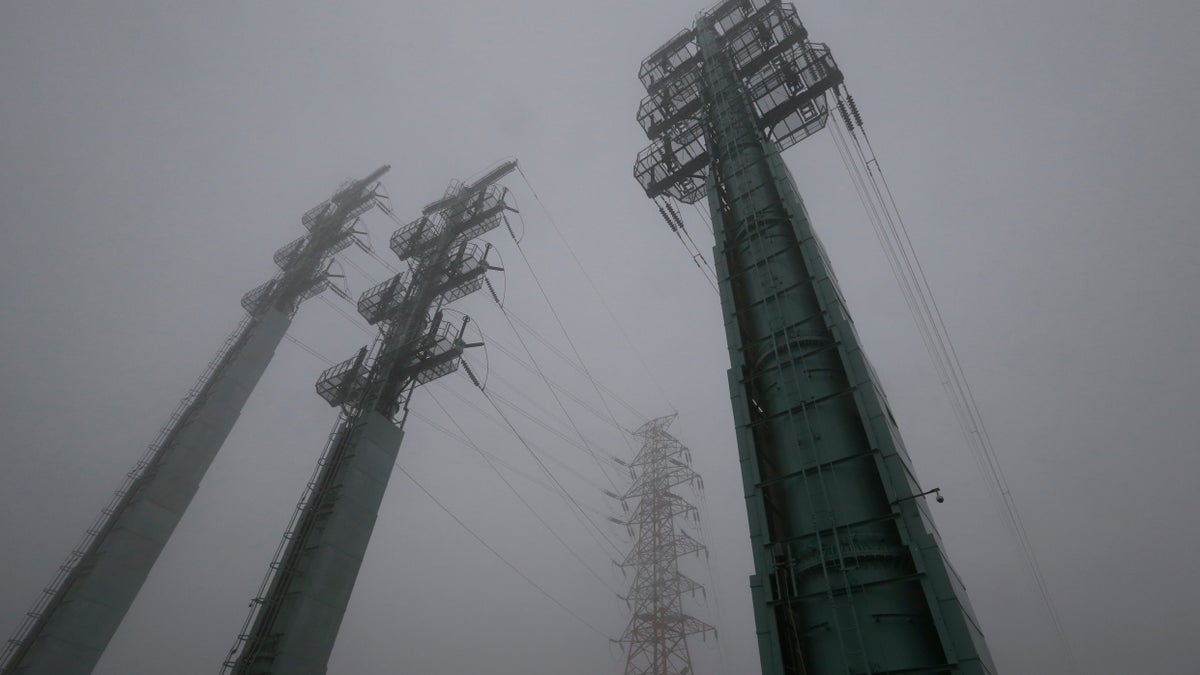
Transmission towers supplying power to the Kaesong Industrial Complex from South Korea are seen after South Korea cut off power. (AP Photo/Lee Jin-man)
Among the losers in the retaliatory sparring between the rival Koreas are residents who had been depending on a rarity in impoverished North Korea: a steady supply of water from the now-shuttered jointly run factory park in the North Korean border city of Kaesong.
Seoul said Friday that water and power had been shut down at what had been the two Koreas' last major symbol of cooperation. It was the latest development in a standoff that started with North Korea's nuclear test last month, followed by its long-range rocket launch Sunday. South Korea responded by beginning work Thursday to shut down the Kaesong factories, the last major symbol of Korean cooperation. North Korea then ejected all South Korean workers, seized the companies' assets and vowed to militarize the park.
South Korea had been using a facility it built at a reservoir near the park to pump about 17,000 tons of water into Kaesong every day, according to an official at the South's state-run water management company who didn't want to be identified because he wasn't authorized to talk to reporters.
About 7,000 tons of the daily water supply were used by the park's factories, and the remaining 10,000 tons were used by area residents, he said. He didn't know how many Kaesong residents used the water but estimated that it could be as many as tens of thousands of people. He said North Korea cannot use the water facility without finding an alternative source of electricity, something that could be difficult in a country with unreliable power supplies.
Analysts believe that North Korea's annual nationwide electricity output would only be enough to power Seoul, the South Korean capital of 10 million, for less than four months. About one-fifth of North Korea's electricity is believed to be diverted to its 1.2 million-person military.
South Korean government analysts say the area around the Kaesong factory park was one of the few places outside of the North Korean capital, Pyongyang, that enjoyed a stable power and water supply, largely because of the infrastructure built by Seoul.
That's over now.
Less than an hour after hundreds of South Koreans safely returned home late Thursday after being deported by North Korea, South Korea cut off power to the complex, which in turned disabled its water supply system, according to Seoul's Unification Ministry.
More than 120 South Korean companies employed about 54,000 North Koreans at the factories in Kaesong. They say a prolonged cutoff of electricity and water will severely damage their factory equipment and could permanently kill the park.
When North Korea withdrew its workers from the park for five months in 2013, Seoul maintained a minimum level of power and water supplies to the park in the hope that it would reopen soon.







































